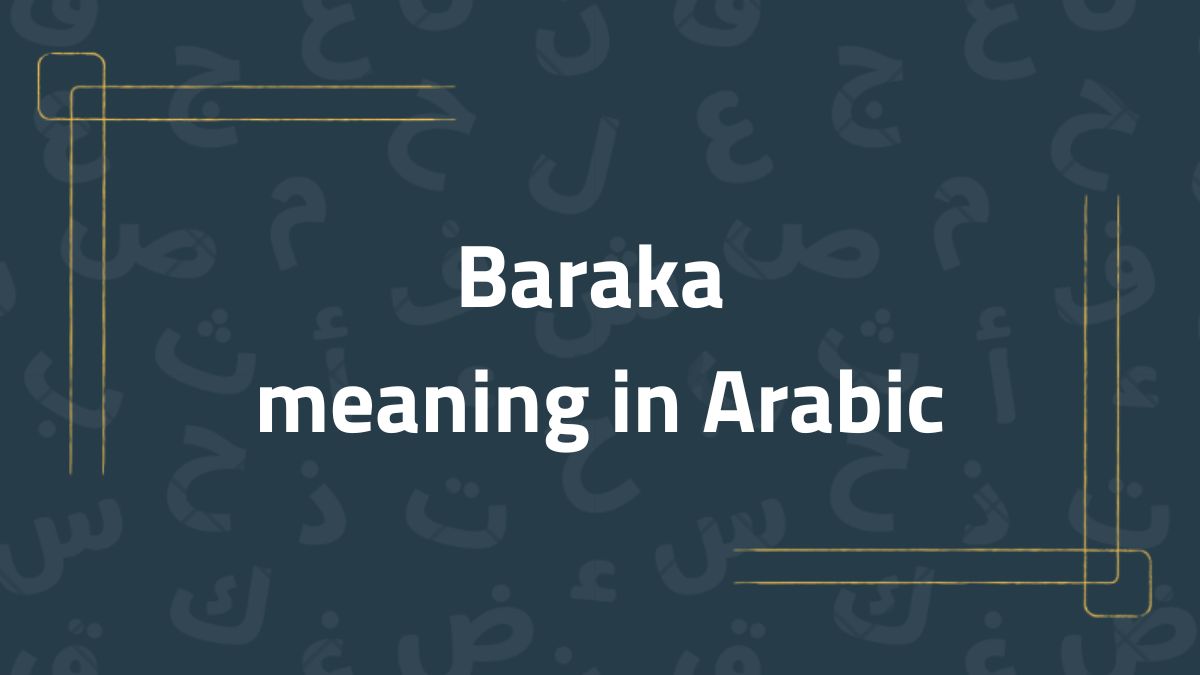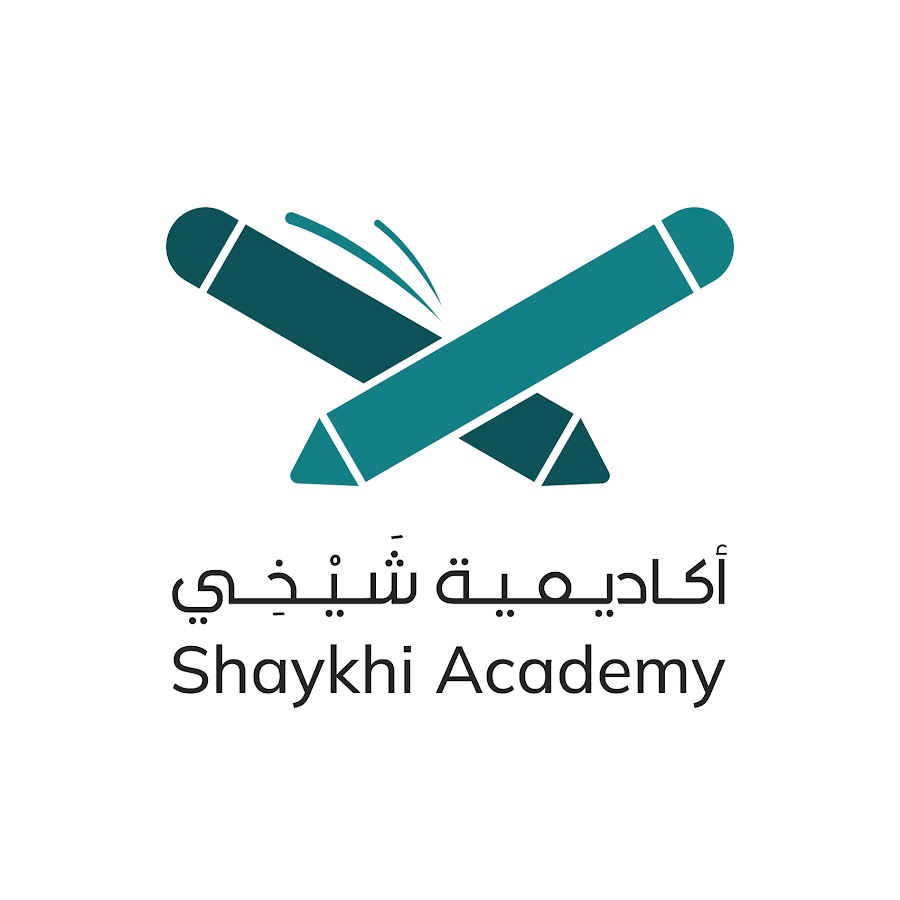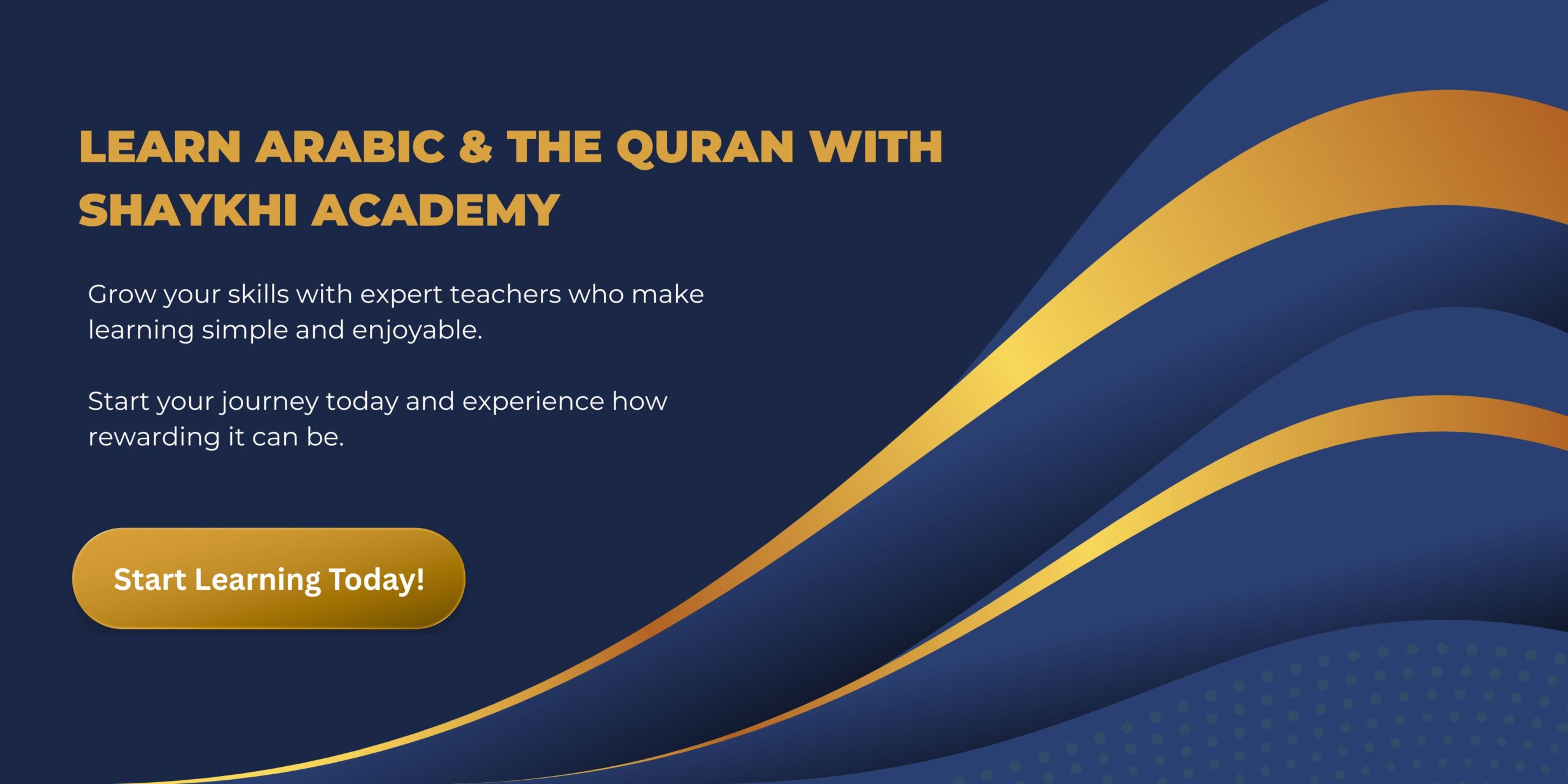The Word Baraka Meaning in Arabic With Examples

The Arabic word “Baraka” (بركة) holds deep meaning in both language and culture. It is widely used in daily conversation and Islamic teachings. This article explains the meaning of “Baraka,” its linguistic roots, usage in sentences, and its significance in the Quran.
You will also learn common mistakes and why this word is important for Arabic learners.
The Meaning of “Baraka” in Arabic
“Baraka” translates to “blessing” or “divine grace” in English. It refers to a spiritual or material benefit granted by God. The pronunciation is “bah-rah-kah.”
People use “Baraka” to describe prosperity, abundance, or a positive force in life. For example, a fruitful harvest or a successful business may be called “Baraka.”
Linguistic Root and Grammatical Usage
The root of “Baraka” comes from the Arabic letters B-R-K (ب-ر-ك). This root forms words related to blessings and prosperity.
Grammatically, “Baraka” is a noun. Variations include:
-
“Barakah” (بركة) – Another common spelling.
-
“Mubarak” (مبارك) – Means “blessed.”
-
“Tabrik” (تبريك) – Means “congratulation” or “blessing.”
Examples of “Baraka” in Arabic Sentences
-
هذا البيت فيه بركة
Translation: “This house has Baraka (blessing).” -
الزراعة هذا العام فيها بركة
Translation: “This year’s farming has Baraka (abundance).” -
ادعوا لي بالبركة
Translation: “Pray for me to receive Baraka (divine grace).”
Cultural or Quranic Significance of “Baraka”
“Baraka” appears in the Quran, emphasizing God’s blessings. For example:
-
Surah Al-A’raf (7:96):
“And if the people of the cities had believed and feared Allah, We would have opened upon them blessings from the heaven and the earth.”
Here, “blessings” translates from “Barakat.”
In Islamic culture, “Baraka” is linked to good deeds, charity, and gratitude. Many Muslims use the word to express thankfulness for God’s gifts.
Common Misunderstandings or Mistakes
Some learners confuse “Baraka” with:
-
“Barka” (برقا) – Means “lightning” (unrelated).
-
“Barak” (برك) – Means “he knelt” (different root).
Another mistake is mispronouncing “Baraka” as “Barakah.” Both are correct, but “Baraka” is more common in spoken Arabic.
Why You Should Learn “Baraka”
Understanding “Baraka” helps in:
-
Quranic studies – Many verses mention divine blessings.
-
Daily conversation – Arabs frequently use it to describe good fortune.
-
Cultural insight – It reflects Islamic values of gratitude and spirituality.
Conclusion
The word “Baraka” carries a powerful meaning in Arabic, representing divine blessings and prosperity. It has deep roots in the Quran and Islamic culture. Learning this word enhances Arabic comprehension and spiritual understanding. Whether reading the Quran or speaking with natives, recognizing “Baraka” enriches language skills.
By mastering words like “Baraka,” you gain a better grasp of Arabic and its cultural significance. Keep practicing to use it correctly in conversations and religious contexts.
Discover the Quran and Arabic with Shaykhi Academy
We highly recommend Shaykhi Academy for anyone seeking to learn the Quran and Arabic with excellence. The academy is known for combining expert teaching with a compassionate approach, making it a top choice for students worldwide who want to connect deeply with the words of Allah.
At Shaykhi Academy, you’ll find highly qualified teachers who specialize in guiding learners of all ages and levels. Whether you’re just beginning your journey with Arabic letters or aiming to master Tajweed and Quran recitation, their personalized lessons ensure steady progress at your own pace.
With engaging classes, flexible scheduling, and a focus on both spiritual and linguistic growth, Shaykhi Academy makes learning both enjoyable and impactful.
Watch a sample class below to see Shaykhi Academy in action:
Learn Arabic, Quran, And Tajweed With Free Trial!
Make your home a place of faith, understanding, and connection with the Quran. Whether you're starting from scratch or deepening your knowledge, Shaykhi Academy is here to guide you — step by step. ✅ Tailored for all ages ✅ Clear, structured learning ✅ Flexible online sessions ✅ Book your free trial session now!
Learn More
